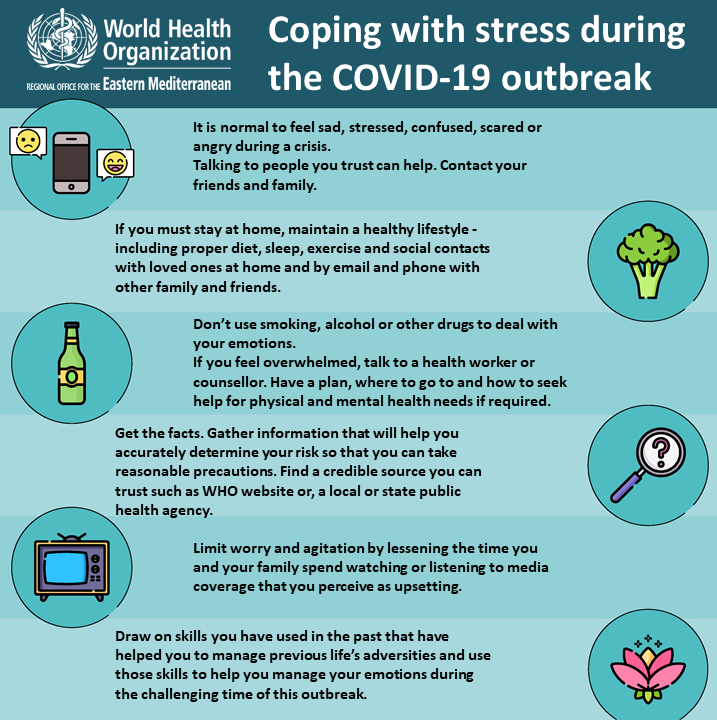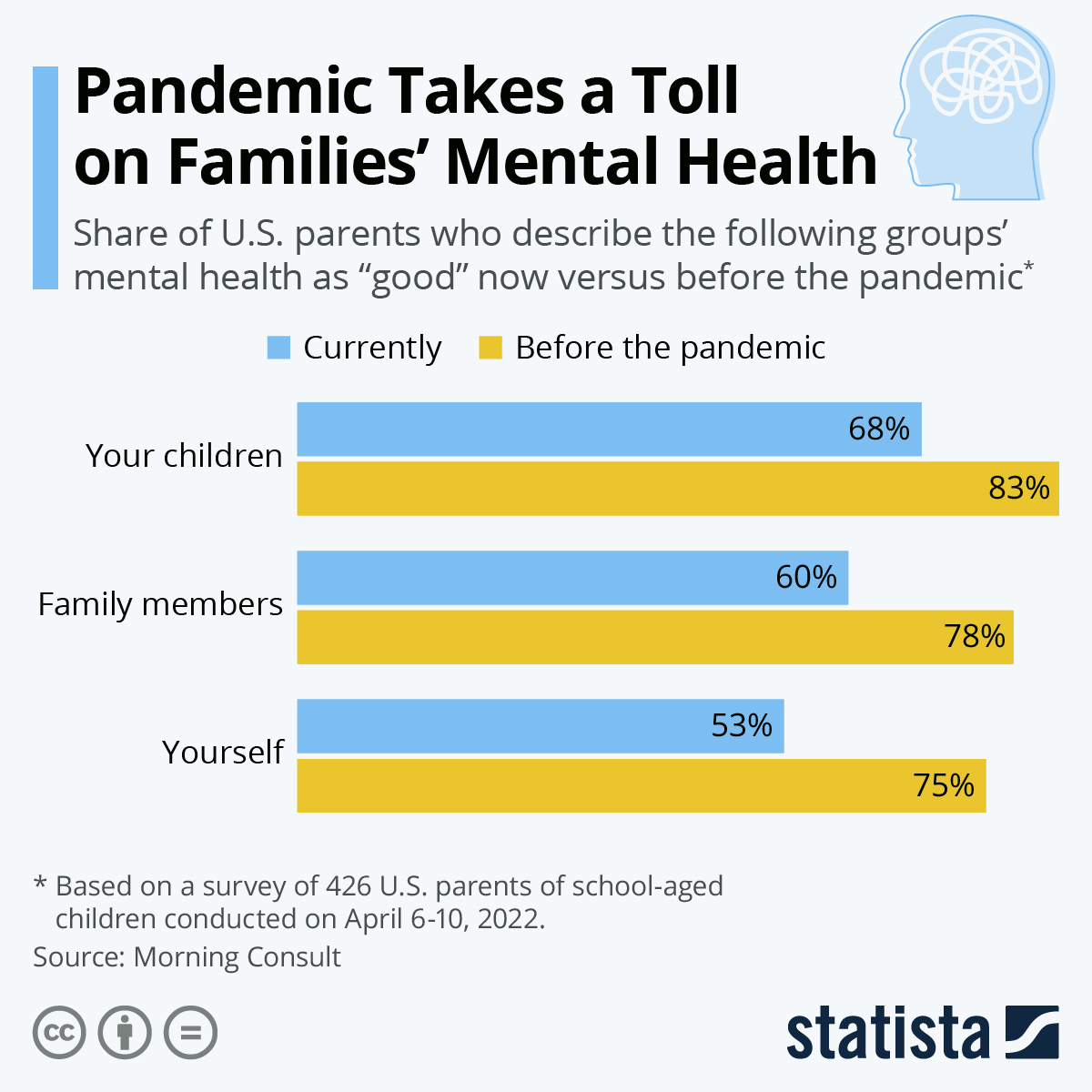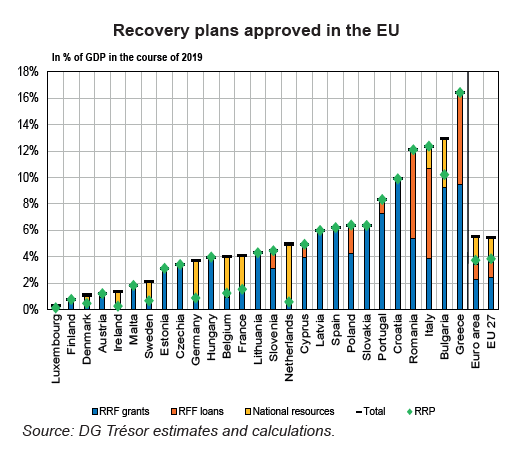Coping with Pandemic Challenges: Strategies for Resilience

Navigating the Storm: Strategies for Resilience Amid Pandemic Challenges
The ongoing global pandemic has presented unprecedented challenges, affecting individuals and communities on a profound level. However, amidst the chaos, there are strategies for coping with pandemic challenges that can foster resilience and empower individuals to navigate these uncertain times.
Prioritizing Mental Well-being
Coping with pandemic challenges begins with prioritizing mental well-being. The uncertainties, isolation, and constant news updates can take a toll on mental health. Establishing a routine, staying connected with loved ones, and seeking professional support are essential steps in maintaining mental resilience during these trying times.
Adapting to Remote Work and Learning
As remote work and online learning become the new norm, adapting to these changes is crucial. Creating a dedicated workspace, establishing boundaries between work and personal life, and embracing technology for effective communication are vital strategies for success in the era of remote work and learning.
Embracing Change and Flexibility
The pandemic has forced individuals and businesses to adapt to rapid changes. Embracing change and cultivating flexibility are key components of coping with pandemic challenges. This mindset shift allows for a more resilient response to unexpected situations and paves the way for creative problem-solving.
Fostering Connection Despite Physical Distancing
Physical distancing measures may limit face-to-face interactions, but fostering connections is more important than ever. Utilizing technology for virtual gatherings, reaching out to friends and family, and participating in online communities can help maintain a sense of connection and combat feelings of isolation.
Financial Planning and Stability
Economic uncertainties during the pandemic underscore the importance of financial planning. Creating a budget, building an emergency fund, and seeking financial advice can contribute to financial stability and alleviate stress associated with economic challenges.
Health and Wellness Practices
Prioritizing health and wellness is a fundamental aspect of coping with pandemic challenges. Establishing a healthy routine that includes regular exercise, nutritious eating, and adequate sleep can enhance physical resilience. Additionally, following recommended health guidelines contributes to overall well-being.
Learning New Skills and Hobbies
The pandemic provides an opportunity for personal growth through learning new skills or pursuing hobbies. Whether it’s picking up a musical instrument, acquiring a new language, or exploring creative pursuits, engaging in activities that bring joy and fulfillment can serve as a constructive coping mechanism.
Staying Informed Responsibly
While staying informed about the pandemic is essential, consuming excessive information can contribute to anxiety. Practicing responsible information consumption, fact-checking sources, and taking breaks from news updates can help strike a balance between staying informed and preserving mental well-being.
Community Support and Solidarity
Communities play a crucial role in coping with pandemic challenges. Offering support to neighbors, participating in community initiatives, and fostering a sense of solidarity contribute to collective resilience. Acts of kindness and empathy create a network of support that benefits individuals and the community as a whole.
Building a Resilient Future
Coping with pandemic challenges is not only about surviving the present but also about building a resilient future. By implementing these strategies, individuals can cultivate the strength needed to face ongoing uncertainties, contribute to collective well-being, and emerge from the pandemic stronger and more resilient.
For more information on coping with pandemic challenges and fostering resilience, visit Coping with Pandemic Challenges.
Nurturing Mental Wellbeing During the Pandemic Challenges

Navigating the Challenges: Nurturing Mental Wellbeing During the Pandemic
The COVID-19 pandemic has brought forth unprecedented challenges, impacting every facet of life. Amidst the physical health concerns, the pandemic has also triggered a global mental health crisis. Nurturing mental wellbeing during these challenging times has become a paramount concern, requiring a holistic approach to address the multifaceted aspects of mental health.
Understanding the Impact on Mental Health
The uncertainties, social isolation, economic pressures, and health anxieties associated with the pandemic have collectively contributed to a surge in mental health issues. Understanding the impact of these stressors on mental health is the first step towards implementing effective strategies for support and resilience.
Prioritizing Self-Care and Routine
Amid the chaos, establishing and maintaining a routine is crucial for mental wellbeing. Prioritizing self-care activities, such as regular exercise, adequate sleep, and healthy eating, can significantly contribute to stress reduction and emotional balance. Small, consistent self-care practices become pillars of stability in uncertain times.
Fostering Social Connections in a Distanced World
Social distancing measures have led to increased feelings of isolation and loneliness. Fostering social connections, even in a virtual space, is essential for mental wellbeing. Regular video calls, online group activities, and staying connected with friends and family can provide a sense of support and combat feelings of loneliness.
Seeking Professional Support
For individuals facing more severe mental health challenges, seeking professional support is crucial. Therapists, counselors, and mental health professionals can provide valuable guidance and therapeutic interventions. Telehealth services have become more widely available, offering convenient and accessible options for seeking help.
Addressing Pandemic-Related Anxiety
The constant barrage of pandemic-related information can contribute to heightened anxiety levels. Implementing strategies to manage and limit exposure to news, fact-checking information sources, and focusing on positive and uplifting content can help mitigate pandemic-related anxiety.
Encouraging Open Conversations About Mental Health
Destigmatizing mental health discussions is essential for fostering a supportive environment. Encouraging open conversations about mental health allows individuals to share their experiences, seek guidance, and realize they are not alone in their struggles. Creating a culture of understanding reduces the barriers to seeking help.
Promoting Mindfulness and Stress Reduction Techniques
Incorporating mindfulness and stress reduction techniques into daily life can be beneficial for mental wellbeing. Practices such as meditation, deep breathing exercises, and mindfulness-based activities help individuals manage stress, improve focus, and cultivate a sense of calm in the midst of uncertainty.
Balancing Work and Personal Life in Remote Environments
The shift to remote work has blurred the boundaries between professional and personal life, contributing to increased stress and burnout. Establishing clear boundaries, taking breaks, and prioritizing work-life balance are crucial for maintaining mental wellbeing in a remote work environment.
Cultivating Hobbies and Creative Outlets
Engaging in hobbies and creative outlets is a constructive way to channel energy and alleviate stress. Whether it’s art, music, writing, or other creative pursuits, dedicating time to activities that bring joy and fulfillment contributes to a more balanced and resilient mental state.
Reflecting on Growth and Resilience
The pandemic has been a collective challenge that has tested the resilience of individuals and communities. Reflecting on personal growth, acknowledging one’s resilience, and recognizing strengths developed during difficult times can foster a positive mindset and outlook for the future.
For more information on nurturing mental wellbeing during the pandemic, visit Mental Wellbeing Pandemic.
Navigating Life: Social Distancing in the Pandemic Era

Adapting to Change: Navigating Life Through Social Distancing in the Pandemic Era
The global pandemic has reshaped the way we live, work, and interact. Central to these changes is the practice of social distancing, a necessary measure to curb the spread of the virus. As we navigate life in this new normal, understanding the impact of social distancing and adopting strategies for its effective implementation becomes essential.
The Rationale Behind Social Distancing
Social distancing serves as a critical tool in reducing the transmission of infectious diseases, including COVID-19. By minimizing close contact between individuals, especially in crowded spaces, the spread of the virus can be slowed, protecting both individuals and the broader community. Understanding the rationale behind social distancing is fundamental to its successful implementation.
Challenges in Maintaining Social Connections
While the necessity of social distancing is clear, it comes with challenges, particularly in maintaining social connections. Human beings are inherently social creatures, and the physical separation mandated by social distancing measures can lead to feelings of isolation and loneliness. Finding innovative ways to stay connected becomes paramount.
Virtual Connectivity: Bridging the Gap
In the digital age, virtual connectivity has emerged as a crucial bridge to overcome the challenges posed by physical distancing. Video calls, virtual meetings, and online social platforms have become lifelines for maintaining connections with friends, family, and colleagues. Leveraging technology to foster virtual social interactions is an essential aspect of adapting to this new way of life.
Navigating Changes in Work and Education
Social distancing has profoundly affected the workplace and educational institutions. Remote work and online learning have become the norm, requiring adjustments in daily routines and approaches to collaboration. Adapting to these changes involves creating effective home workspaces, embracing digital tools, and finding a balance between professional and personal life.
Impact on Mental Health: Addressing Isolation and Stress
The isolation resulting from social distancing measures can have a significant impact on mental health. Feelings of loneliness, anxiety, and stress may arise. Acknowledging these challenges and actively seeking strategies for mental well-being, such as regular exercise, mindfulness practices, and staying connected virtually, are crucial for maintaining mental health in the pandemic era.
Reimagining Social Activities: Safety First
Social distancing doesn’t mean the end of social activities; rather, it requires a reimagination of how we engage with others. Outdoor activities, virtual events, and small, safely distanced gatherings become key components of socializing while prioritizing safety. Adhering to public health guidelines ensures that social interactions contribute to rather than compromise community health.
Community Support and Solidarity
The pandemic has underscored the importance of community support and solidarity. Acts of kindness, mutual aid initiatives, and supporting local businesses are ways in which communities can come together during these challenging times. Building a sense of solidarity fosters resilience and strengthens the collective response to the pandemic.
Balancing Caution and Connection
As vaccines become more widely available and restrictions evolve, finding the right balance between caution and connection is crucial. Adapting to changing circumstances while prioritizing public health guidelines ensures a responsible and considerate approach to social interactions. Flexibility and ongoing awareness are key to navigating the uncertainties of the pandemic era.
Looking to the Future: Lessons Learned and Resilience
Social distancing has been a central aspect of navigating the challenges posed by the pandemic. As we look to the future, the lessons learned from adapting to social distancing – resilience, innovation, and a renewed appreciation for human connections – will shape the way we approach public health and community well-being in the post-pandemic world.
For more insights on navigating life through social distancing, visit Social Distancing Pandemic.
Navigating Global Pandemic Challenges: Strategies for Coping

Understanding the Landscape of Global Pandemic Challenges
The world has faced unprecedented challenges with the onset of the global pandemic. From health crises to economic downturns, the impact has been profound. In this exploration, we delve into strategies and insights on coping with the multifaceted challenges posed by the ongoing global crisis.
Prioritizing Mental Health in the Face of Uncertainty
Coping with the uncertainties and stresses of a global pandemic requires a steadfast focus on mental health. From managing anxiety to fostering resilience, individuals worldwide have been adopting strategies to prioritize mental well-being amidst the challenges posed by the pandemic.
Adapting to Remote Work and Learning Environments
The shift towards remote work and online learning has been a significant adaptation to pandemic challenges. This section explores how individuals and organizations have coped with this transition, highlighting the importance of adaptability and technological integration in maintaining productivity and education.
Community Support and Solidarity: A Source of Strength
Amidst the challenges, communities globally have come together to provide support and solidarity. This section discusses the role of community initiatives, mutual aid networks, and collective efforts in helping individuals cope with the impacts of the pandemic and fostering a sense of belonging.
Economic Resilience and Innovations in Business
The pandemic has prompted a reevaluation of economic structures and business operations. This part of the article examines how individuals and businesses have showcased resilience, adapted to new market dynamics, and embraced innovations to navigate the economic challenges brought on by the global crisis.
Navigating Health Challenges: Prevention and Well-being
Coping with a global health crisis involves proactive measures for prevention and overall well-being. From adopting healthier lifestyles to staying informed about health guidelines, individuals have been taking steps to navigate the health challenges posed by the pandemic and protect themselves and their communities.
Digital Connection in a Socially Distanced World
The need for social distancing has accelerated the reliance on digital platforms for connection. This section explores how technology has played a crucial role in maintaining social ties, fostering virtual communities, and serving as a lifeline for individuals coping with the isolation caused by the pandemic.
Educational Resources for Coping Strategies
For those seeking resources on coping with global pandemic challenges, TheHealthyConsumer.com offers valuable insights and strategies. Visit the website for articles, tips, and resources dedicated to navigating the multifaceted challenges of the ongoing global crisis.
Strategies for Building Resilience
Building resilience is key to coping with the long-term impacts of a global pandemic. This section discusses strategies individuals can adopt to build personal and collective resilience, emphasizing the importance of adaptability, mindfulness, and maintaining a positive outlook.
Looking Forward: Hope and Opportunities Amidst Challenges
In the face of adversity, individuals and communities worldwide are finding hope and opportunities for growth. This concluding section reflects on the resilience demonstrated by people globally and explores the potential for positive transformations and opportunities that can emerge from coping with the challenges of a global pandemic.
In conclusion, coping with the challenges posed by a global pandemic requires a multifaceted approach. By prioritizing mental health, embracing change, fostering community support, and utilizing resources for coping strategies, individuals can navigate the complexities of this crisis. TheHealthyConsumer.com serves as a valuable resource for those seeking insights and guidance on coping with the ongoing global challenges.
Mental Wellbeing in the Pandemic: Challenges and Strategies

In recent times, our world has been grappling with a unique kind of challenge that transcends borders and affects individuals on a global scale. The COVID-19 pandemic has not only posed a threat to physical health but has also brought to the forefront the importance of mental wellbeing. As societies navigate the complexities of lockdowns, social distancing, and uncertainty about the future, the impact on mental health has become increasingly evident. In this article, we explore the crucial connection between the pandemic and mental wellbeing.
The Toll on Mental Health:
The pandemic has introduced a myriad of stressors, ranging from fears of contracting the virus to economic uncertainties and social isolation. These challenges have taken a toll on mental health, leading to a surge in anxiety, depression, and other mental health disorders. The constant stream of pandemic-related information and the disruption of daily routines have contributed to heightened stress levels for many.
The Importance of Social Connection:
Social distancing measures, while necessary for public health, have inadvertently contributed to feelings of loneliness and isolation. Human beings are inherently social creatures, and the sudden disruption of social connections can have profound effects on mental wellbeing. Maintaining social ties, even through virtual means, becomes crucial in alleviating the impact of isolation and fostering a sense of community.
Adapting to Change:
One of the key factors influencing mental health during the pandemic is the need for individuals to adapt to a rapidly changing environment. Uncertainty about the future, coupled with the need to adapt to new work and lifestyle patterns, can be a significant source of stress. Building resilience and developing coping mechanisms are essential components of navigating these changes while safeguarding mental wellbeing.
The Role of Physical Health:
Physical and mental health are intricately linked, and the pandemic has underscored the importance of maintaining a healthy lifestyle. Regular exercise, a balanced diet, and sufficient sleep play crucial roles in supporting mental health. Establishing and maintaining healthy habits contribute not only to physical resilience but also to emotional and psychological well-being.
Seeking Professional Support:
Acknowledging the challenges to mental health and seeking professional support is a crucial step in mitigating the impact of the pandemic. Mental health professionals provide valuable guidance, coping strategies, and a supportive space for individuals to navigate their emotions. The destigmatization of seeking mental health support is an essential aspect of fostering a culture that prioritizes well-being.
Community Initiatives for Mental Wellbeing:
Communities play a vital role in supporting mental health initiatives. From local support groups to online communities, the shared experience of the pandemic can be a unifying force. By fostering a sense of solidarity and providing resources for mental health awareness, communities can contribute significantly to the collective well-being of their members.
In the midst of these challenging times, it’s crucial to recognize the interconnectedness of physical and mental health. As we navigate the complexities of the pandemic, prioritizing mental wellbeing is not just a personal responsibility but a collective endeavor that requires a supportive societal framework.
For more information on maintaining mental wellbeing during the pandemic, consider exploring resources such as Mental Wellbeing Pandemic. These resources can provide valuable insights, tips, and support for individuals seeking to prioritize and enhance their mental health in the face of ongoing challenges.
Rebuilding Stronger: Effective Pandemic Recovery Plans
Rebuilding Stronger: Crafting Effective Pandemic Recovery Plans
The aftermath of a pandemic necessitates strategic recovery plans to rebuild and strengthen communities. In this article, we delve into the elements of effective pandemic recovery plans, emphasizing resilience, innovation, and a collective commitment to emerging stronger from the challenges faced.
Assessment and Reflection: Understanding the Impact
The foundation of any effective pandemic recovery plan lies in a thorough assessment of the impact. Reflecting on the economic, social, and health consequences allows for a nuanced understanding of the challenges ahead. This phase involves collaboration between policymakers, experts, and community stakeholders to gather insights for informed decision-making.
Economic Revitalization: Stimulus and Support Measures
One key aspect of pandemic recovery plans is the revitalization of the economy. Governments implement stimulus packages and support measures to jumpstart economic activities. These measures may include financial aid for businesses, job creation initiatives, and investments in key sectors to fuel economic growth and stability.
Healthcare Infrastructure Reinforcement: Learning from the Crisis
The pandemic exposed vulnerabilities in healthcare systems globally. Recovery plans prioritize reinforcing healthcare infrastructure to better handle future health crises. This involves investing in medical facilities, ensuring an adequate supply of medical resources, and enhancing research and development capabilities to stay ahead of emerging health challenges.
Innovation and Adaptation: Paving the Way Forward
An essential component of recovery plans is fostering innovation and adaptation. Businesses, educational institutions, and communities must embrace new ways of operating. Innovation in technology, healthcare delivery, and education ensures resilience in the face of uncertainties, laying the groundwork for a more adaptable and robust future.
Community Engagement: Building Social Cohesion
Recovery plans prioritize community engagement as a cornerstone for rebuilding. Fostering social cohesion involves engaging communities in decision-making processes, addressing concerns, and promoting inclusivity. Strong community bonds contribute to a collective sense of purpose, making recovery efforts more effective and sustainable.
Environmental Sustainability: A Focus on Resilient Futures
Pandemic recovery plans recognize the importance of environmental sustainability. Embracing eco-friendly practices and investing in sustainable infrastructure contribute to building resilience against future crises. Balancing economic recovery with environmental stewardship ensures a more sustainable and resilient future for generations to come.
Education Transformation: Adapting to New Norms
Recovery plans acknowledge the transformative impact on education. Adapting to new norms involves investing in technology for remote learning, providing support for educators, and addressing the educational inequalities highlighted by the pandemic. This transformative approach ensures a resilient and inclusive education system.
Psychosocial Support: Addressing Mental Health Challenges
The pandemic has taken a toll on mental health globally. Effective recovery plans include provisions for psychosocial support, recognizing the need to address mental health challenges. Initiatives may involve accessible mental health services, community support networks, and destigmatizing mental health issues for a healthier society.
Global Cooperation: Solidarity in Recovery
Pandemic recovery plans extend beyond national borders. Global cooperation is essential for sharing resources, expertise, and best practices. Collaborative efforts between countries, international organizations, and global initiatives strengthen the collective response to the pandemic aftermath, fostering a sense of global solidarity.
Resilience Building for the Future: Lessons Learned
As communities implement pandemic recovery plans, it is vital to incorporate lessons learned for resilience building. This involves creating frameworks for future crisis management, prioritizing data-driven decision-making, and instilling a culture of preparedness. Recovery plans become a roadmap for not just rebuilding but also for fortifying against future uncertainties.
For more insights on effective pandemic recovery plans, visit Pandemic Recovery Plans.
Assessing the Pandemic’s Impact on Various Sectors

Assessing the Pandemic’s Impact on Various Sectors
The ongoing global pandemic has brought about unprecedented challenges, reshaping the landscape of various sectors in profound ways. From healthcare to economy, education to technology, the impact assessment of the pandemic reveals a complex tapestry of changes that require careful examination.
Healthcare System Overhaul
One of the most glaring effects of the pandemic has been the immense pressure placed on healthcare systems worldwide. Hospitals and healthcare professionals have faced unprecedented challenges, from shortages of critical medical supplies to overwhelming patient numbers. The pandemic has underscored the need for a resilient and adaptable healthcare infrastructure to cope with unforeseen crises.
Economic Disruptions and Job Insecurity
The pandemic’s economic impact has been far-reaching, causing disruptions in global supply chains, business closures, and widespread job losses. Many individuals and families are grappling with financial uncertainties, emphasizing the importance of building resilient economies that can withstand and recover from such shocks.
Transformation of Education Methods
The education sector has undergone a significant transformation, with traditional classrooms giving way to remote and online learning. The pandemic has accelerated the adoption of digital technologies in education, prompting a reassessment of teaching methods and the role of technology in shaping the future of learning.
Remote Work and Technological Advances
The shift towards remote work has been a key outcome of the pandemic, with businesses adapting to new models of operation. This change has catalyzed technological advancements, leading to increased reliance on digital tools for collaboration and communication. The pandemic has spurred innovation in technology, influencing the way we work and interact.
Challenges in Mental Health
The pandemic’s toll extends beyond physical health, as mental health challenges have become more prevalent. Isolation, uncertainty, and fear have contributed to a rise in mental health issues. Acknowledging and addressing these challenges is crucial for building a resilient society that prioritizes mental well-being.
Global Travel and Tourism Reimagined
Travel and tourism, once thriving industries, have been severely impacted by the pandemic. Lockdowns, travel restrictions, and safety concerns have led to a significant decline in tourism. As the world gradually reopens, the travel industry faces the challenge of reinventing itself to meet the evolving needs and expectations of travelers.
Environmental Resilience and Sustainability
The pandemic has offered a moment of reflection on our impact on the environment. Reduced human activity during lockdowns resulted in temporary environmental improvements. This realization has spurred discussions on the importance of sustainable practices and the need for long-term environmental resilience in the face of global challenges.
Community and Social Dynamics
The pandemic has influenced community dynamics, fostering both a sense of solidarity and, at times, exacerbating existing social inequalities. Understanding the social impacts of the pandemic is essential for creating inclusive policies that address the needs of diverse communities and promote social cohesion.
Preparedness for Future Crises
The pandemic serves as a wake-up call for global preparedness in the face of future crises. From health emergencies to economic shocks, developing robust strategies and systems for crisis response and recovery is imperative. The lessons learned from the pandemic can guide the development of comprehensive preparedness plans on local, national, and global levels.
Looking Ahead: Building a Resilient Future
As we assess the multifaceted impact of the pandemic, it becomes clear that building a resilient future requires collaborative efforts and adaptive strategies. The integration of lessons learned from the pandemic will shape the way we approach challenges, emphasizing the need for global cooperation, innovation, and a commitment to creating a more sustainable and equitable world.
For more information on the impact assessment of the pandemic and strategies for building a resilient future, visit Impact Assessment Pandemic.
Navigating Pandemic Challenges: Strategies for Coping

Navigating Pandemic Challenges: Strategies for Coping
The ongoing pandemic has presented unprecedented challenges, affecting individuals globally. In this article, we explore effective strategies for coping with the various aspects of the pandemic, including mental health, lifestyle adjustments, and maintaining resilience in the face of uncertainty.
Understanding the Mental Health Impact: Prioritizing Well-being
One of the foremost challenges during the pandemic is the impact on mental health. Uncertainty, isolation, and fear can take a toll on emotional well-being. Coping strategies involve prioritizing mental health, seeking support when needed, and recognizing the importance of self-care practices to navigate these challenging times.
Establishing Routine and Structure: Creating Stability Amidst Chaos
The disruption caused by the pandemic has led to a sense of chaos and unpredictability. Establishing a routine and structure in daily life can provide stability. Creating a schedule that incorporates work, leisure, and self-care activities helps individuals regain a sense of control and normalcy in their lives.
Embracing Lifestyle Adjustments: Adapting to the New Normal
The pandemic has necessitated lifestyle adjustments to comply with safety measures. Coping involves embracing these changes, whether in work arrangements, social interactions, or daily routines. Finding innovative ways to stay connected virtually and adapting to new norms contribute to a more resilient approach to the challenges at hand.
Fostering Social Connections: Combating Isolation
Social isolation has been a significant challenge during the pandemic. Coping strategies include fostering social connections, even if it’s through virtual means. Regular communication with friends and family, participating in online communities, and engaging in virtual events help combat feelings of loneliness and isolation.
Physical Well-being: Integrating Health Practices
Physical well-being is integral to coping with the pandemic. Incorporating health practices, such as regular exercise, balanced nutrition, and sufficient sleep, contributes to overall resilience. Prioritizing physical health not only strengthens the immune system but also positively impacts mental and emotional well-being.
Limiting Information Overload: Managing News Consumption
Constant exposure to pandemic-related news can contribute to anxiety and stress. Coping involves managing information consumption by setting boundaries on news exposure. Selecting reliable sources, scheduling designated times for updates, and taking breaks from news consumption contribute to a healthier mental state.
Seeking Professional Support: A Vital Resource for Coping
In challenging times, seeking professional support is a valuable coping resource. Mental health professionals, counselors, and support hotlines offer assistance and guidance. Recognizing the importance of reaching out for professional help when needed is a crucial aspect of building resilience during the pandemic.
Cultivating Hobbies and Interests: Finding Joy Amidst Challenges
Engaging in hobbies and interests is a powerful coping mechanism. Whether it’s a creative pursuit, a recreational activity, or learning something new, cultivating hobbies provides a source of joy and distraction. These activities serve as outlets for self-expression and contribute to overall well-being.
Mindfulness and Stress Reduction: Techniques for Relaxation
Mindfulness practices and stress reduction techniques are effective coping tools. Incorporating activities such as meditation, deep breathing exercises, and mindfulness meditation into daily routines helps manage stress levels. These techniques promote a sense of calm and contribute to mental and emotional resilience.
Building Resilience for the Future: Lessons Learned
As individuals navigate the challenges of the pandemic, the experience becomes an opportunity to build resilience for the future. Coping involves recognizing the lessons learned, adapting to changing circumstances, and fostering a mindset of growth and adaptability. Embracing these lessons contributes to a more resilient and prepared outlook.
For more insights on coping with the pandemic, visit Coping with Pandemic.
Navigating Mental Health: Coping Amidst the Pandemic

Unseen Struggles: Mental Health Challenges Amidst the Pandemic
The global pandemic has brought about unprecedented challenges, extending beyond physical health to the realm of mental well-being. In this exploration, we delve into the complexities of the mental health pandemic and strategies for coping.
The Silent Toll on Mental Well-being
As the pandemic unfolds, the toll on mental health becomes increasingly evident. Social isolation, economic uncertainties, and the fear of the virus contribute to heightened stress and anxiety levels. Acknowledging the silent struggles individuals face is the first step in addressing the mental health pandemic.
Isolation and Its Impact on Mental Wellness
Social isolation, a necessary measure for containing the virus, has unintended consequences on mental wellness. The lack of social interactions, disrupted routines, and the absence of physical connection with loved ones can lead to feelings of loneliness and exacerbate existing mental health conditions.
Economic Strain and Mental Stress
The economic fallout from the pandemic has created financial stress for many individuals and families. Job losses, business closures, and economic uncertainties contribute to heightened levels of stress, anxiety, and, in some cases, depression. Addressing the economic strain is integral to holistic mental health support.
Coping Mechanisms: Strategies for Mental Resilience
Developing coping mechanisms is crucial for maintaining mental resilience during challenging times. Establishing routines, incorporating mindfulness practices, and engaging in activities that bring joy and relaxation can provide a sense of stability and support mental well-being amidst the uncertainties.
The Role of Teletherapy in Mental Health Support
With the limitations on in-person interactions, teletherapy has emerged as a vital tool for mental health support. Virtual counseling sessions offer individuals the opportunity to connect with mental health professionals, fostering a sense of continuity in care during times of physical distancing.
Breaking the Stigma: Encouraging Open Conversations
Breaking the stigma surrounding mental health is essential for creating a supportive environment. Encouraging open conversations about mental well-being, normalizing seeking help, and providing education on mental health contribute to fostering a culture of understanding and empathy.
Community Support Networks: Strengthening Social Bonds
Building and strengthening community support networks are crucial elements in mitigating the mental health pandemic. Communities coming together, whether virtually or within safe physical distancing measures, provide a sense of belonging and support, alleviating the impact of isolation.
The Importance of Self-Care Practices
Prioritizing self-care is a fundamental aspect of mental health maintenance. Adequate sleep, balanced nutrition, regular physical activity, and time for relaxation contribute to overall well-being. Empowering individuals with the knowledge and tools for self-care is an investment in mental health resilience.
Government Initiatives and Mental Health Policies
Recognizing the significance of mental health, governments and organizations worldwide are implementing initiatives and policies to support mental well-being. Accessible mental health resources, helplines, and community programs are vital components of a comprehensive approach to addressing the mental health pandemic.
Mental Health Pandemic: A Call for Collective Action
As we navigate the challenges of the mental health pandemic, a call for collective action resonates. Stay informed about mental health strategies and resources at Mental Health Pandemic. Together, let us foster a world where mental well-being is prioritized, supported, and protected.
Navigating Challenges: Coping Strategies Amidst the Pandemic

Coping Strategies Amidst the Pandemic: Navigating Challenges with Resilience
The global pandemic has brought forth unprecedented challenges, requiring individuals to navigate uncertainty and upheaval. In this article, we explore coping strategies that empower individuals to navigate the complexities of the pandemic, fostering resilience and well-being during these trying times.
Understanding the Impact: Acknowledging the Challenges
Before delving into coping strategies, it’s essential to acknowledge the profound impact of the pandemic on various aspects of life. From health concerns to economic uncertainties and disruptions in daily routines, understanding the breadth of challenges sets the stage for effective coping mechanisms.
Prioritizing Mental Well-Being: The Foundation of Coping
Amidst the challenges, prioritizing mental well-being becomes paramount. Coping strategies often begin with recognizing and addressing the mental health impact of the pandemic. Practices such as mindfulness, meditation, and seeking professional support contribute to maintaining emotional balance and resilience.
Establishing Routine: Creating Stability in Uncertainty
The disruption of routines can add to the stress of the pandemic. Coping involves establishing a new sense of routine, even in the face of uncertainty. Creating a daily schedule, setting goals, and incorporating activities that bring joy and relaxation contribute to a sense of stability in turbulent times.
Fostering Social Connections: Combating Isolation
Social distancing measures have led to increased feelings of isolation. Coping strategies include finding innovative ways to foster social connections. Virtual gatherings, video calls, and reaching out to friends and family contribute to combating loneliness and strengthening social support networks.
Adapting to Remote Work Challenges: Balancing Professional and Personal Life
For those facing remote work challenges, coping involves adapting to the new professional landscape. Setting boundaries between work and personal life, creating a dedicated workspace, and maintaining regular breaks contribute to a healthier work-life balance.
Engaging in Hobbies and Creativity: Channeling Positive Energy
Coping with the pandemic involves channeling energy into positive outlets. Engaging in hobbies, creative pursuits, and activities that bring joy not only serve as distractions but also contribute to a sense of accomplishment and well-being.
Staying Informed, Setting Limits: Managing Information Overload
Constant exposure to pandemic-related information can contribute to stress and anxiety. Coping strategies include staying informed from reliable sources while setting limits on news consumption. Focusing on verified information and taking breaks from news updates help manage information overload.
Cultivating Resilience: Embracing a Growth Mindset
Coping with the pandemic requires cultivating resilience and embracing a growth mindset. Recognizing challenges as opportunities for personal and collective growth fosters a positive outlook. Coping becomes not just about surviving but about learning and adapting in the face of adversity.
Seeking Support: Building a Network of Assistance
No one should navigate the challenges of the pandemic alone. Coping involves recognizing when support is needed and actively seeking it. Whether through friends, family, or professional services, building a network of assistance is a key component of resilience.
Looking Forward: Embracing Hope for the Future
As individuals cope with the challenges of the pandemic, it’s crucial to look forward with hope. Coping strategies are not just about managing the present but also about building a foundation for a positive and hopeful future. Embracing hope becomes a powerful coping mechanism in itself.
For more insights on coping with the pandemic, visit Coping with Pandemic.





